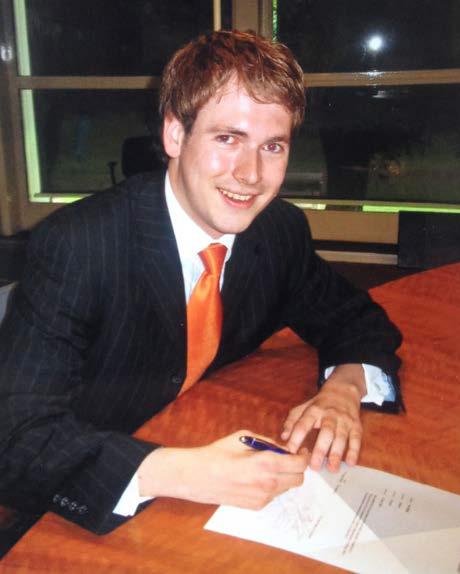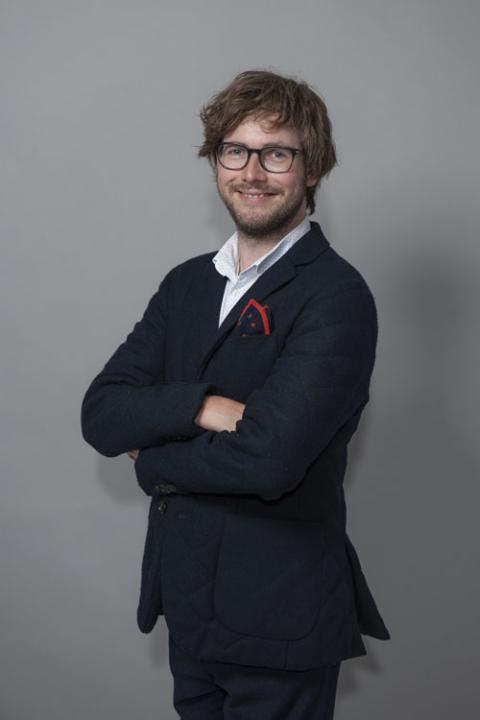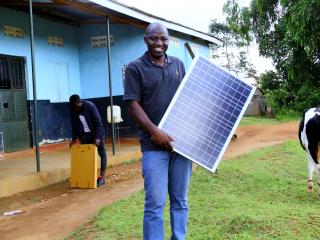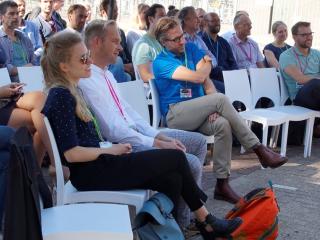Remko ten Barge is energized by electricity
“If we want to make a success of the energy transition, we need to change not only the supply of energy, with solar and wind-generated power, but also the behavior of end users,” says Remko ten Barge, co-founder and CEO of NieuweStroom, the energy provider that charges its customers the public hourly price for electricity. Remko studied Business Economics at Tilburg University, which gives the energy transition a Tilburg touch: the idea for NieuweStroom, which seeks to break with fixed prices and the associated risk premiums in energy contracts, came to him while he was still studying.
The benefits of his disadvantage
Remko ten Barge (37) grew up in the Achterhoek, a region in the east of the Netherlands, displaying an early flair for entrepreneurship and financial insight. At school he sold fireworks in the playground – outside firework season, because it was more profitable. He also loaned money. Even then he had an unerring feeling for supply and demand. The nerve disorder from which he has suffered from early childhood has not prevented him from cultivating that talent. On the contrary: asking for help, making connections, and doing things in smarter ways has got him where he is now. “I think that there are lots of people who don’t get everything they can out of their talent, and my condition simply gives me more motivation to do so. There are certain things I can’t do, but that just makes me want to do everything I can do as well as I possibly can. Setting the bar as high as possible, if you can clear it, you get a lot further than the others.”
My condition simply gives me more motivation to get everything I can out of my talent’

Enthusiastic in the study association
He was already showing that he could clear that bar as a student. Garnering a first-rate secondary school diploma, he chose to study economics – at Tilburg, because its campus was well organized and so were its student associations. “The emphasis was more on study associations than on student associations,” Remko notes. He joined FST (now Asset | Accounting & Finance, ed.), an enthusiastic study association where he became an editor. There, too, like almost everywhere else, he wanted to get the most out of it. “I started as an editor, became editor-in-chief, and then I was made a member of the board. I was eventually asked to join the Advisory Council, and I’ve been on the council ever since."
Honest feedback
To stimulate the entrepreneurial spirit he had discovered in himself and a handful of fellow students he founded the Academic Business Club (ABC), together with student entrepreneur Robin van Lieshout and Professor Vianen. “We wanted to start being entrepreneurs at university. The plan was to pitch our ideas to one another. We had not expected there to be so many other business-minded students; people came from all over the place to take part in the ABC meetings, that were held once a month on Monday evening.
“They made a huge contribution to entrepreneurship at the university. If someone is thinking about starting a business, or is hatching a plan, I can only say: go to the ABC meetings. You get honest feedback, so you soon find out whether your idea is feasible or not.” Van Lieshout and Ten Barge also organized the first Entrepreneurship Symposium, now known as The Road. “Entrepreneurship has become a lot more popular at the university over the last 15 years,” he adds.
Even if you go bankrupt, it’s an invaluable learning experience
Invaluable learning experience
All these experiences brought him to where he now is: the CEO of NieuweStroom, an innovative energy provider that has its customers freely follow the peaks and troughs that characterize sustainable energy production. Those customers who use electricity when there is plenty of supply, or little demand, pay less.
The idea came from business partner and fellow student Geert van Lümig, with whom Ten Barge ran a telecom company during their student years. The company no longer exists, but the experience taught Remko a great deal. “I would recommend anyone to start a company as a student. Even if you go bankrupt, it’s an invaluable learning experience – for the rest of your career, both for yourself and for the company you work for.”
Sustainability and profit
Why the energy market? “I’ve no special interest in energy,” explains Ten Barge, “but I am interested in a good concept that makes the market more efficient, cuts out middlemen, and delivers value to customers in a logical way. This concept has all of that. Customers get lower bills, on average, and they get to take part in the energy transition. It’s a case of sustainability and profit going hand in hand.”
Solid foundation
To what extent did his time at university help him get to where he is now? “It put a solid foundation under my entrepreneurship and the six years that I’ve worked in the financial sector – and in a time of crisis. Back then, if you’d had your own business as a student then you could start anywhere. It was a very good basis for me to be able to later do what I’m best at, and what I enjoy doing most: not the ‘real’ economy, but a combination of business, sales and setting up concepts. It was Professor Verboven, Professor Duffhues and Professor Renneboog who inspired me to take that approach forward, and to make a business out of it.”

Photography: Marcel Krijger
Date of publication: 27 August 2019



